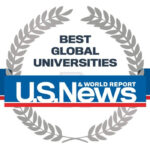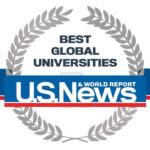U.S. News & World Report Best Global Universities is a prestigious ranking system that annually assesses and ranks universities worldwide. This influential list serves as a benchmark for academic excellence, attracting global attention from prospective students, researchers, and institutions alike.
The ranking methodology is comprehensive, taking into account factors like research output, academic reputation, and global collaborations. By analyzing these metrics, U.S. News & World Report provides a valuable insight into the strengths and weaknesses of universities across various regions, ultimately influencing the global landscape of higher education.
Top-Ranked Universities
The U.S. News & World Report Best Global Universities ranking evaluates universities worldwide based on their research performance and academic reputation. The ranking considers factors such as publications, citations, international collaboration, and global reputation. This comprehensive approach aims to identify the institutions that are making the most significant contributions to global knowledge and innovation.
Top 10 Universities
The top 10 universities in the 2023 U.S. News & World Report Best Global Universities ranking are a testament to the academic excellence and research prowess of these institutions. Here are the top 10 universities, along with their strengths and areas of excellence:
- University of Oxford (United Kingdom): Renowned for its long history, exceptional research, and strong global reputation, Oxford excels in a wide range of fields, including medicine, law, and humanities.
- University of Cambridge (United Kingdom): Known for its world-class research, particularly in science, technology, and engineering, Cambridge also boasts a strong alumni network and a vibrant academic community.
- Harvard University (United States): A leading institution in the United States, Harvard is known for its exceptional research, strong alumni network, and global impact. It excels in a wide range of fields, including medicine, law, and business.
- Stanford University (United States): Stanford is recognized for its entrepreneurial spirit, cutting-edge research, and strong alumni network. It excels in fields such as computer science, engineering, and medicine.
- Massachusetts Institute of Technology (MIT) (United States): MIT is a world leader in science, technology, and engineering. Known for its innovation and its strong emphasis on research and development, MIT attracts top students and faculty from around the globe.
- University of California, Berkeley (United States): Berkeley is a leading public research university, known for its academic excellence, research strength, and commitment to public service. It excels in fields such as engineering, computer science, and social sciences.
- University of California, Los Angeles (UCLA) (United States): UCLA is a comprehensive research university, known for its strong academic programs, particularly in medicine, engineering, and arts. It has a large and diverse student body and a strong commitment to community engagement.
- Imperial College London (United Kingdom): Imperial College London is a leading institution in science, technology, medicine, and engineering. Known for its world-class research and its strong emphasis on innovation, Imperial College attracts top students and faculty from around the globe.
- Princeton University (United States): Princeton is a highly selective institution known for its strong academic programs, particularly in the humanities and social sciences. It also has a strong emphasis on research and a commitment to undergraduate teaching.
- University of Chicago (United States): The University of Chicago is known for its rigorous academic programs, particularly in the social sciences and humanities. It also has a strong emphasis on research and a commitment to intellectual freedom.
Geographic Distribution
The top 10 universities in the U.S. News & World Report Best Global Universities ranking are geographically diverse, with institutions from both the United States and the United Kingdom. The United States dominates the top 10 with 6 institutions, followed by the United Kingdom with 4. This geographic distribution reflects the global reach of these institutions and their impact on the world stage.
Impact of the Ranking on Universities
The U.S. News & World Report Best Global Universities ranking has a significant impact on universities worldwide. While the ranking is just one of many factors that influence a university’s success, it can have both positive and negative consequences for institutions that are ranked highly.
Benefits of a High Ranking
A high ranking in the U.S. News & World Report Best Global Universities ranking can bring numerous benefits to a university.
- Enhanced Reputation and Visibility: A high ranking can significantly enhance a university’s reputation and visibility both domestically and internationally. It can attract more attention from prospective students, faculty, and researchers, leading to increased applications and a more diverse student body.
- Increased Funding and Resources: Universities with a high ranking are often seen as more prestigious and desirable, leading to increased funding from various sources. This can include government grants, private donations, and increased research funding opportunities.
- Improved Student Recruitment: A high ranking can make a university more attractive to prospective students, especially international students. It can also help attract top talent, leading to a more competitive and diverse student body.
- Enhanced Faculty Recruitment: A high ranking can also attract top faculty members who are looking for prestigious and well-funded institutions to work at. This can lead to a more experienced and diverse faculty, enhancing the quality of education and research.
Challenges of a High Ranking
While a high ranking can bring numerous benefits, it also presents some challenges for universities.
- Increased Pressure and Competition: A high ranking can create increased pressure on universities to maintain their position and compete with other top institutions. This can lead to a focus on metrics and rankings, potentially at the expense of other important aspects of education and research.
- Potential for Misrepresentation: The ranking methodology is based on a set of indicators, which may not always accurately reflect the true quality and value of a university. Some institutions may focus on optimizing their ranking rather than prioritizing their core mission, potentially misrepresenting their true strengths and capabilities.
- Limited Focus: The ranking can create a narrow focus on certain aspects of a university, such as research output or international collaborations, potentially neglecting other important areas, such as student well-being, teaching quality, or community engagement.
Impact on University Recruitment
A high ranking in the U.S. News & World Report Best Global Universities ranking can have a significant impact on university recruitment. It can make a university more attractive to prospective students, especially international students. This is because a high ranking is often seen as an indicator of quality and prestige, which can be a major factor in student decision-making.
Trends in Global Higher Education: U.s. News & World Report Best Global Universities
The landscape of global higher education is constantly evolving, driven by a confluence of factors including technological advancements, globalization, and shifting demographics. These trends are reshaping the way universities operate, how students learn, and the very definition of higher education itself.
International Student Mobility
The movement of students across borders for educational purposes has become a defining characteristic of global higher education. This trend is fueled by a number of factors, including:
- Desire for quality education: Students seek out universities with strong reputations and cutting-edge research facilities, often found in countries like the United States, the United Kingdom, and Australia.
- Career opportunities: A degree from a prestigious international university can open doors to a wider range of career opportunities, both domestically and globally.
- Cultural immersion: International study offers a unique opportunity for students to experience different cultures, broaden their perspectives, and develop valuable intercultural skills.
The U.S. News & World Report Best Global Universities ranking reflects this trend by incorporating metrics that measure the international reputation of universities, including the number of international students enrolled and the number of publications co-authored with researchers from other countries. The ranking highlights universities that are successful in attracting and retaining international students, demonstrating their global reach and influence.
Online Learning
The rise of online learning platforms and massive open online courses (MOOCs) has democratized access to higher education, allowing students from all over the world to learn from top universities without having to relocate. This trend has been accelerated by the COVID-19 pandemic, which forced many universities to transition to online instruction.
- Flexibility and accessibility: Online learning offers students the flexibility to study at their own pace and on their own schedule, making it accessible to those with work or family commitments or who live in remote areas.
- Cost-effectiveness: Online courses can be significantly less expensive than traditional on-campus programs, making higher education more affordable for a wider range of students.
- Global reach: Online learning platforms break down geographical barriers, allowing students from all over the world to access courses and interact with peers and instructors from diverse backgrounds.
The U.S. News & World Report Best Global Universities ranking is beginning to incorporate metrics related to online learning, such as the number of online courses offered and the university’s reputation for online education. This reflects the growing importance of online learning in the global higher education landscape.
Factors Contributing to University Rankings
University rankings are a complex and multifaceted process, with numerous factors influencing a university’s position on various league tables. These rankings are not merely about prestige; they reflect a university’s commitment to research, teaching, and global impact.
Research Output, U.s. news & world report best global universities
The volume and quality of research output are crucial components of university rankings. Research publications in high-impact journals, citations, and the number of patents obtained are all indicators of a university’s research prowess. For instance, the Times Higher Education World University Rankings places significant weight on research citations, reflecting the influence of a university’s research on the broader academic community.
Academic Reputation
A university’s reputation among academics is another critical factor in rankings. Peer review surveys, where academics are asked to rate other institutions, are a common method for assessing reputation. The Academic Reputation score in the QS World University Rankings is based on a survey of over 94,000 academics worldwide, who are asked to nominate the top universities in their field.
Global Collaborations
Increasingly, universities are collaborating with institutions across borders, fostering international research projects and student exchange programs. These collaborations enhance a university’s global visibility and impact. The ShanghaiRanking’s Academic Ranking of World Universities, for example, considers the number of international collaborations in its ranking methodology.
Student-to-Faculty Ratio
The student-to-faculty ratio reflects the level of personalized attention students receive. A lower ratio generally indicates smaller class sizes and more opportunities for student-faculty interaction. The U.S. News & World Report Best Global Universities rankings, for example, consider the student-to-faculty ratio as a measure of teaching resources.
Graduation Rates
Graduation rates are an indicator of student success and a university’s ability to support its students. Higher graduation rates suggest that students are completing their degrees in a timely manner, which can be a reflection of the quality of education and support services provided by the institution.
Alumni Outcomes
The achievements of a university’s alumni can also influence its ranking. Rankings may consider factors such as the employment rate of graduates, the number of alumni who hold prominent positions in their fields, and the average starting salaries of graduates.
International Student Enrollment
The number of international students enrolled at a university can be a sign of its global appeal and its ability to attract talent from around the world. A diverse student body can enrich the learning environment and foster cross-cultural understanding.
Diversity
Diversity in student demographics, faculty representation, and research areas can contribute to a university’s ranking. Institutions that actively promote diversity and inclusion are often seen as more attractive to students and faculty, reflecting a commitment to a broader range of perspectives and experiences.
Impact of the Ranking on Students and Researchers
The U.S. News & World Report Best Global Universities ranking has a significant impact on the choices students make and the recruitment and retention of researchers at universities. The ranking’s influence extends beyond academic reputation, shaping perceptions of universities and influencing career decisions.
Influence on Students’ University Choices
The ranking plays a crucial role in influencing students’ university choices. Many students, especially international students, use the ranking as a primary source of information when deciding where to apply and study.
- Higher Ranking, Higher Interest: Universities with higher rankings often receive more applications from prospective students, particularly those seeking opportunities in prestigious institutions.
- Reputation and Prestige: A high ranking signifies academic excellence and prestige, making universities more attractive to students who value these factors.
- Career Prospects: Students often believe that graduating from a highly ranked university can enhance their career prospects, making it a significant factor in their decision-making process.
Impact on Researcher Recruitment and Retention
The ranking also influences the recruitment and retention of researchers at universities.
- Attracting Top Talent: Universities with higher rankings are often more successful in attracting top researchers, as these individuals are drawn to institutions with a strong reputation for academic excellence.
- Research Funding and Opportunities: A high ranking can also lead to increased research funding and opportunities, making universities more attractive to researchers seeking to advance their careers.
- Career Advancement: Researchers often view affiliation with a highly ranked university as a significant factor in career advancement and professional recognition.
Potential for Pressure and Competition
While the ranking can be beneficial, it also creates pressure and competition among students and researchers.
- Focus on Rankings: Universities may prioritize activities that improve their ranking, potentially neglecting other important aspects of academic life, such as teaching and student well-being.
- Pressure on Students: Students may feel pressured to attend highly ranked universities, leading to increased stress and anxiety, especially when competing for limited spots.
- Competition among Researchers: Researchers may feel pressure to publish in high-impact journals and secure prestigious grants to enhance their university’s ranking, potentially leading to a focus on quantity over quality in research.
The U.S. News & World Report Best Global Universities ranking plays a crucial role in shaping the global higher education landscape. While it offers valuable insights into academic excellence, it’s important to remember that rankings are just one piece of the puzzle when evaluating universities. Factors such as individual program strengths, research opportunities, and cultural fit should also be considered.
The U.S. News & World Report Best Global Universities ranking provides a comprehensive overview of the world’s top institutions, highlighting their academic excellence and research impact. Kent State University, a prominent public research university in Ohio, has consistently earned a place among the top universities in the U.S. News & World Report rankings. To stay updated on the latest news and achievements of Kent State University, be sure to visit their official news website: kent state university news.
This platform provides valuable insights into the university’s contributions to research, education, and community engagement, further solidifying its position within the global higher education landscape.
The U.S. News & World Report Best Global Universities ranking provides a comprehensive overview of the world’s top institutions, evaluating factors like academic research, global reputation, and alumni performance. To delve deeper into the methodology and explore the full rankings, you can visit the dedicated website for university rankings us news and world report. This resource allows you to compare universities across various disciplines and regions, providing valuable insights for prospective students and researchers.






